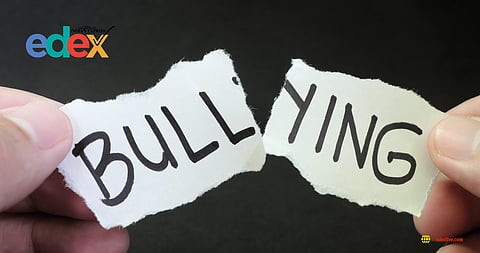

Hey everyone, I'm sure you're all aware of the child in the frame who became the target.
It began with a few seconds of footage — a ten-year-old on India's most popular quiz show, speaking bluntly to the host. Within hours, that moment became a global meme. He was labelled rude, arrogant, disrespectful — not as a child, but as a “mini adult.” But honestly, in my opinion, in that firestorm of comments, the real casualty wasn’t just his image. It was his innocence!
The digital playground turned courtroom
When Ishit Bhatt appeared on Kaun Banega Crorepati, many saw confidence; others saw defiance. Within minutes, the internet divided itself into moral juries. The louder narrative became a wave of trolling — merciless criticism, memes, and insults hurled at a ten-year-old. Yes! A ten-year-old!
Here’s what’s often forgotten: a child’s brain isn’t wired for mass judgment.
The prefrontal cortex — the part that handles impulse control, reasoning, and emotional regulation — matures only by the mid-twenties. So while adults online are “reacting,” children are absorbing. Their nervous systems treat online hostility the way our ancestors treated physical danger — as a threat. The body floods with cortisol. Sleep, concentration, and confidence take the hit.
The developing self-concept of a child (especially between ages 8-12) hinges on external validation. What they read about themselves online often becomes how they start seeing themselves offline. So when a million strangers call a ten-year-old “disrespectful,” it’s not feedback. It’s identity damage and conditioning the kid to BELIEVE what he/she is perceived as, rather than what they truly are!
Child psychologists call this premature ego exposure — when a kid is pushed into adult social evaluation before emotional immunity develops, and the result? Shame, hyper-vigilance, anxiety, people-pleasing, or withdrawal.
And trust me, based on my clinical experience...unlike a bruise, this doesn’t fade with time — it calcifies into how they approach relationships, risk, and self-worth.
The Coach's thought — Our moral outrage is just disguised voyeurism
Let’s admit it: we’ve become a species that loves “correcting” others publicly, especially from behind screens. Every viral clip becomes our classroom, every stranger our syllabus, and we the self-appointed principal. How much do we follow what we preach? Well, that's a whole other scene altogether!
But trolling isn’t correction — it’s projection.
It’s adults venting their own unresolved frustrations onto whoever trends that day. And when that target is a child, it crosses from commentary to cruelty.
So here’s the reframe — Empathy is not weakness; it’s maturity.
If we can’t model grace online, what exactly are we teaching the children watching us? Is that outrage a virtue? That ridicule equals righteousness? That silence equals guilt?
Maybe the question isn’t, “Why was that kid rude?”
Maybe it’s, “Why did we forget how to be kind?”
My action plan: Beating the trolls by raising the tone!
For Parents: Teach your child that the internet remembers everything but forgives nothing. Help them separate attention from approval whilst at the same time not being affected by what others comment online.
For Users: Before commenting, run the “mirror test” — Would I say this to their face if their parent were standing beside them? Or better yet, if we were ready to face the same!
For Platforms: Create child-safety filters that block comment sections on content featuring minors. Protect first, monetise later.
For Educators & Mentors: Integrate “digital empathy” into school life-skills programs. Because the next generation won’t just need IQ or EQ — they’ll need DQ, a Digital Quotient of decency.
For Society: Remember, you can’t teach manners to a child by losing your own.
So folks, as I sign off... Remember this :
When a child stumbles, we’re meant to guide, not gossip. If we, the so-called adults... can’t tell the difference between feedback and fury, maybe it’s not the kids who need parenting — it’s us.
Because in the courtroom of social media, everyone wants to be the judge.
But true adulthood… lies in knowing when to stay silent.
With Regards,
Adarsh Benakappa Basavaraj
Your Coach, who still believes common sense scrolls slower than the hate.
